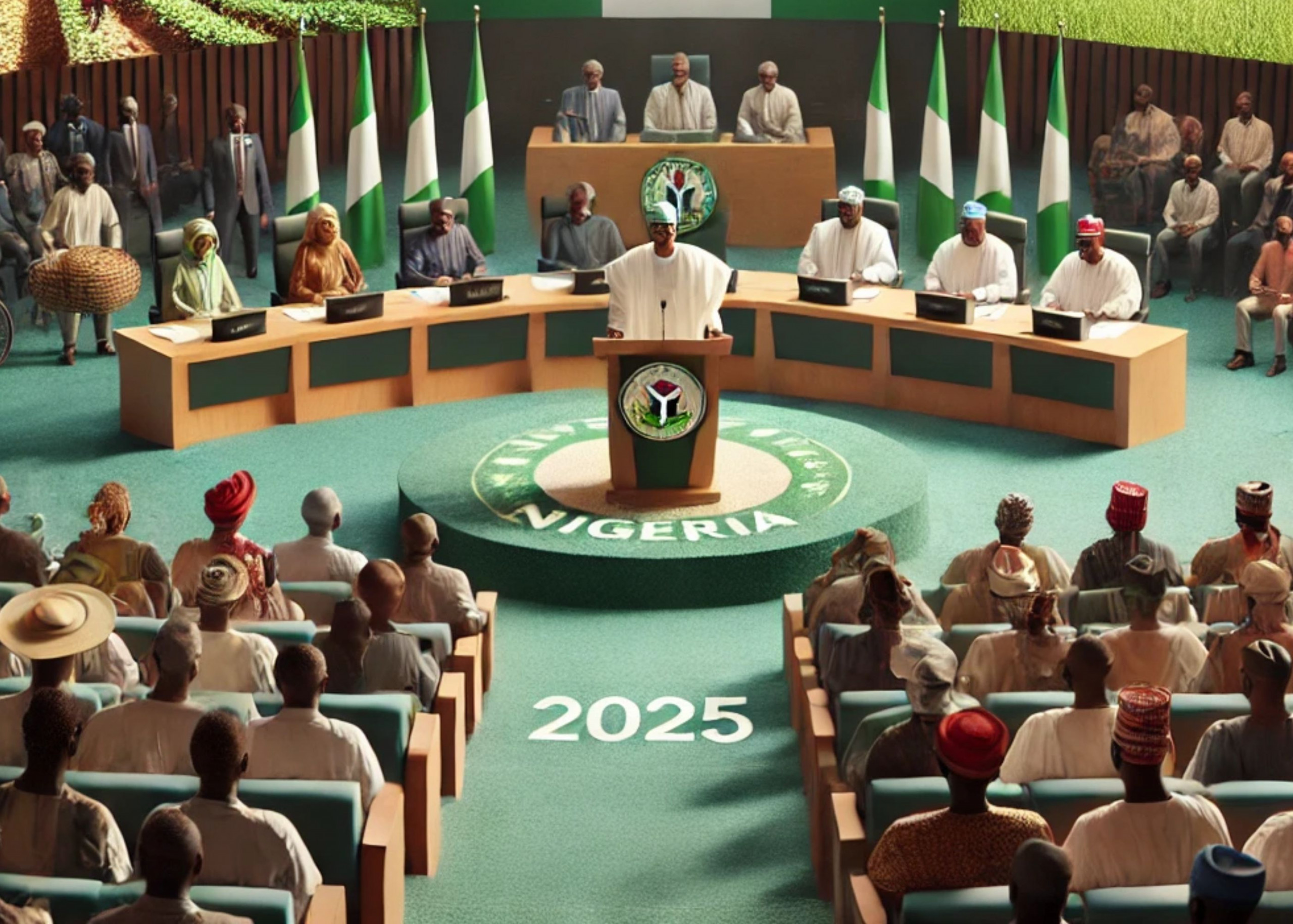News in brief:
– President Bola Tinubu’s 2025 budget prioritises food production, security, and infrastructure, with significant investments to support farmers, mechanisation, and agribusiness.
– The administration projects reduced inflation, a stronger naira, and continued economic growth, backed by improved revenue performance and trade surpluses.
President Bola Ahmed Tinubu presented the 2025 budget to a Joint Session of the National Assembly, highlighting key priorities such as improving food production, security, and infrastructure.
Dubbed the ‘Budget of Restoration,’ the president emphasized that increasing agricultural production is essential for achieving the nation’s food security agenda. He revealed that a portion of the budget will support Nigerian farmers with funding and inputs.
“We are taking bold steps to ensure that every Nigerian can feed conveniently and none of our citizens will have to go to bed hungry,” Tinubu stated.
He specified the allocations for Defence and Security (₦4.91 trillion), Infrastructure Development (₦4.06 trillion), Health (₦2.48 trillion), and Education (₦3.52 trillion). The Budget Office revealed that agriculture MDAs will receive ₦826.5 billion from the ₦47.965 trillion total budget for 2025.
Agriculture and economic diversification take centre stage in 2025 budget
This investment will prioritise mechanisation, irrigation, and value-chain development to ensure the food sector supports economic diversification. Improved food production and bumper harvests, driven by enhanced security in the country’s insecure regions, will reduce reliance on food imports.
The government will encourage capital-intensive agribusiness to attract foreign direct investment (FDI) in the agriculture sector, which has seen limited activity in recent years. It will establish commodity exchanges and agro-processing centres to create jobs for the youth.
Another significant boost to Nigeria’s agriculture sector is the Renewed Hope Fertilizer Support Program (RH-FSP), which aims to enhance fertilizer production and distribution to improve crop yields and farmers’ livelihoods while reducing food-induced inflation. This program will be supported by a ₦127.27 billion intervention for importing raw materials, improving logistics networks, and establishing blending factories.
The administration projects that Nigeria’s inflation will drop to 15% from 34.6%, while the naira will appreciate against the dollar, moving from its official rate of ₦1,700/$1 to ₦1,500/$1.
It asserts its ability to achieve these goals, citing that it met 75% (₦14.55 trillion) of its revenue target for the year by the third quarter and 85% (₦21.60 trillion) of its expenditure goals. It also reported a gross domestic product (GDP) growth of 3.46% in the same quarter. Nigeria’s 2023 trade surplus was ₦5.8 trillion, and its foreign reserves stood at $42 billion.
Agriculture’s budgetary allocation ‘not enough’
At about 1.73% of the 2025 national budget, the agriculture sector has once again failed to nick a significant portion of the ruling administration’s attention. Despite food security being a major part of Tinubu’s campaign promises to the extent that his ‘agbado’ gaffe became famous, the government seems not to be ready to put its money where its mouth is.
Since 2003 when African heads of state committed to allocate at least 10% of their annual budgets to addressing agriculture and rural development, Nigeria has failed to reach this goal for 22 consecutive years with the proposed 2025 budget now submitted.
For a sector that is responsible for over 26% of the local economy, and potential to contribute much more, agriculture should get more than the measly under 2% budgetary allocation.
However, when compared to the most recent administration of President Mohammadu Buhari, it almost equals the average percentage allocation during the two-term tenure (1.73%), according to data from Dataphyte. Yet, that administration had years that saw agriculture get as high as 3.61% (2019) and 2.23% (2018).
Policy expert and frequent contributor to this publication, Femi Adeniyi, has argued that the low investments in Nigeria’s agricultural sector are a matter of perception. He wrote that the focus for agriculture investments should be as a business, especially where private sector participants are involved, and not as a development project.
In support of Adeniyi’s assertion, agribusiness expert and consultant, Niyi Ogungbade, said that agriculture is a business and every stakeholder should see it as such. Investments should be made in the hope of earning returns.
Experts have faulted interventions in the sector, even the Anchor Borrower’s Programme (ABP), for ineffective use of funds.



